
Authorised IB DP School in Cairo
INTERNATIONAL BACCALAUREATE DIPLOMA PROGRAMME – IB DP
International Baccalaureate Programme (IBDP)

The International Baccalaureate Diploma Programme (IBDP) is for students aged 16 to 19. It aims to challenge students, allowing them to gain an excellent breadth and depth of knowledge while developing them into independent thinkers with a global outlook. It allows students to flourish physically, intellectually, emotionally and ethically. It was established to provide students with a balanced education, facilitate geographic and cultural mobility, and to promote international understanding.
The IBDP is highly valued by universities and employers worldwide. The IBO is truly a global organization with IB programmes being studied in 153 countries. The skills and aptitudes developed during the programme provide excellent preparation for university study and employment. The unique combination of 6 subjects, with 3 being studied at Higher Level and 3 at Standard Level, enables students to keep their future career plans flexible, which is highly advantageous bearing in mind the pace of change in global employment opportunities. The focus on inquiry-based learning, critical thinking, action and reflection, is designed to empower students to take responsibility for their own learning. The Core, consisting of an Extended Essay, Theory of Knowledge and Creativity, Activity and Service adds significant value to the 6 subjects studied and provides students with a diverse range of opportunities. We aim to prepare them to become successful global citizens.
IB Mission
The International Baccalaureate Organisation Mission Statement:
“The International Baccalaureate aims to develop inquiring, knowledgeable and caring young people who help to create a better and more peaceful world through intercultural understanding and respect. To this end the organisation works with schools, governments and international organisations to develop challenging programmes of international education and rigorous assessment. These programmes encourage students across the world to become active, compassionate and lifelong learners who understand that other people, with their differences, can also be right.”
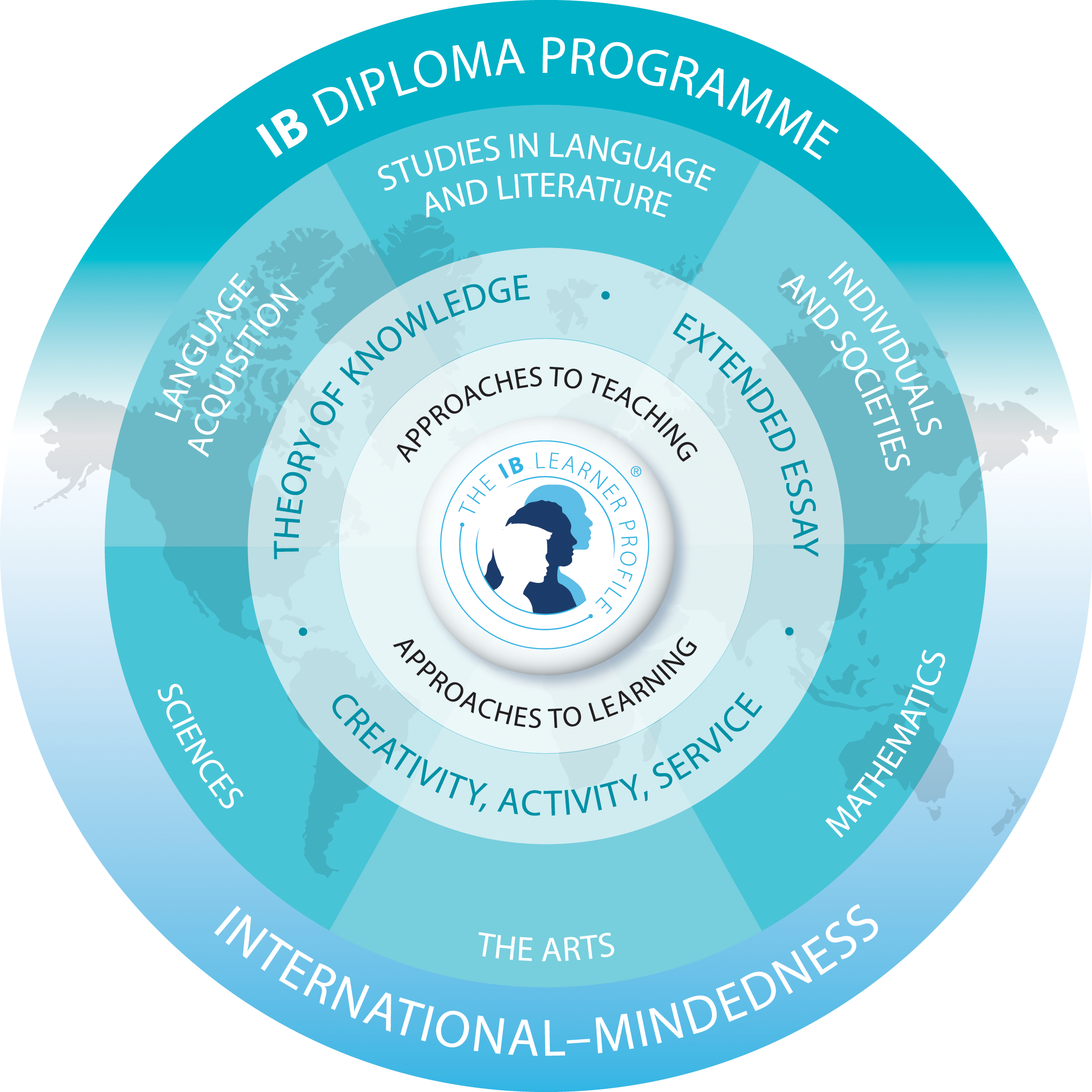
The Diploma Programme at MCE
“I chose the IB because I believe it opens more doors for the future.” (IBDP Student 2019)
Malvern College Egypt’s first guiding statement is ‘The College cultivates the whole pupil’, this is part of the IB ethos and something we, as a College, have written into our vision. Each and every one of our guiding statements embodies that of the IB mission statement, which is why here at MCE we support and encourage our students to follow the IBDP.
Our students are developing into self-confident, independent, internationally-minded students. The International Baccalaureate Diploma Programme (IBDP) at MCE helps them to develop their minds, interests, curiosity, skills and knowledge to flourish as global citizens wherever life may take them.
Students choose the IBDP because it is a broader and more holistic curriculum that is recognised worldwide. The IBDP can be demanding but it rewards students by developing them into rounded, grounded, world citizens. The IBDP is certainly not an easy option but it allows young people to develop their understanding without making them specialise at such an early stage. They may not know their intended route after they leave MCE or may want to just widen their understanding.
“I chose the IBDP because I wanted a course that would teach me life skills such as essay writing and self-management.” (IBDP Student 2019)
Our First Cohort

“My favourite part of the day is seeing my IBDP cohort in from time, we are all so excited by the new journey we are on.” (IBDP Student 2019, MCE 1st cohort)
Why IBDP is Different
The IBDP programme is different from other curricula because it:
• encourages students to think critically and challenge assumptions.
• allows the school to develop independently of government and national systems, incorporating quality practice from research and the IB’s global community of schools.
• encourages students to consider both local and global contexts.
• develops multilingual students.
Different from the International Advanced level programme, students at MCE will be able to continue with 6 subjects as well as broadening their horizons with TOK, EE and CAS (see more about this under “The IB Core").
“It’s about more than just being book smart.” (IBDP Student 2019)
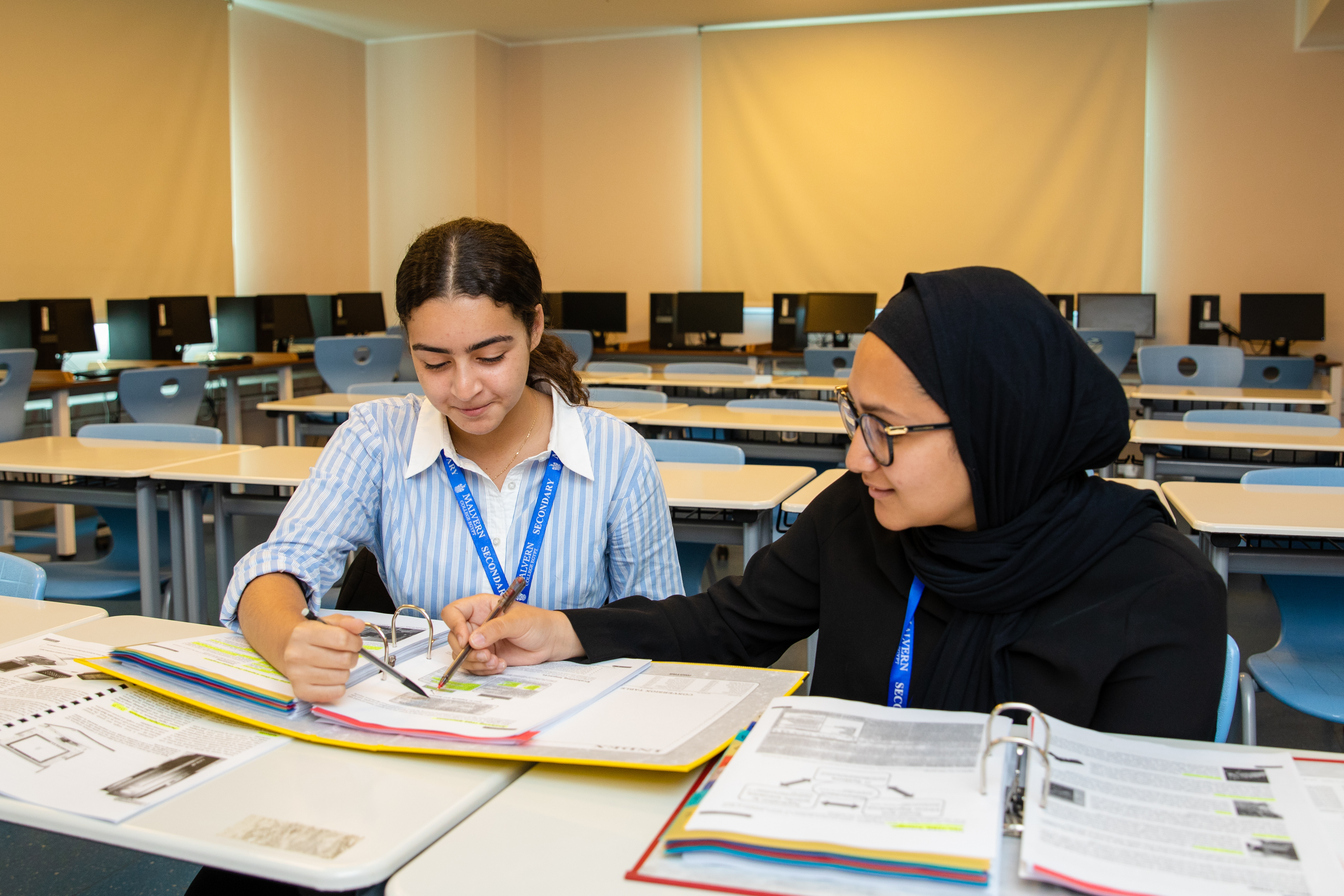
Students at International Baccalaureate® (IB) World Schools are given a unique education. They will:
- be encouraged to think independently and drive their own learning.
- take part in programmes of education that can lead them to some of the highest ranking universities around the world.
- become more culturally aware, through the development of a second language.
- be able to engage with people in an increasingly globalized, rapidly changing world.
Research indicates that IBDP graduates complete university faster than their peers, feel more prepared for university-level coursework involving research, and are better able to cope with demanding workloads and time-management challenges (from the IBO).
“I chose the IBDP because I studied the MYP at my previous school and it developed my sense of curiosity and opened my mind to new ways of thinking.” (IBDP Student 2019)
Outline of the IBDP
It offers a broad and balanced curriculum that seeks to stretch students so that they are fulfilled and stimulated. The IBDP is not an easy option but it allows young people to develop and flourish in a way that other qualifications do not.
The IBDP comprises of six academic subjects and three core elements: Theory of Knowledge, Extended Essay and Creativity, Action and Service (CAS).
At the end of the course pupils are awarded grades (points) for each component and an overall total.
Three subjects at Higher Level (maximum 7 points per subject)
Three subjects at Standard Level (maximum 7 points per subject)
Extended Essay, Theory of Knowledge (maximum 3 additional points)
CAS is compulsory
= 45 points maximum point score
The IB Diploma Programme (DP) is a rigorous, academically challenging and balanced programme of education designed to prepare students aged 16 to 19 for success at university and life beyond. The DP aims to encourage students to be knowledgeable, inquiring, caring and compassionate, and to develop intercultural understanding, open-mindedness and the attitudes necessary to respect and evaluate a range of viewpoints. Approaches to teaching and learning (ATL) within the DP are deliberate strategies, skills and attitudes that permeate the teaching and learning environment. In the DP students develop skills from five ATL categories: thinking, research, social, self-management and communication.
To ensure both breadth and depth of knowledge and understanding, students must choose at least one subject from five groups:
1) Their best language
2) Additional language(s)
3) Social sciences
4) Experimental Sciences,
5) Mathematics’
6) Arts and Electives
Students may choose either an arts subject from group 6, or a second subject from groups 1 to 5. At least three and not more than four subjects are taken at higher level (240 recommended teaching hours), while the remaining are taken at standard level (150 recommended teaching hours).
In addition, three core elements – the extended essay, theory of knowledge and creativity, action, service – are compulsory and central to the philosophy of the programme.
Subject Choices
Students pick 6 subjects, one form each group.
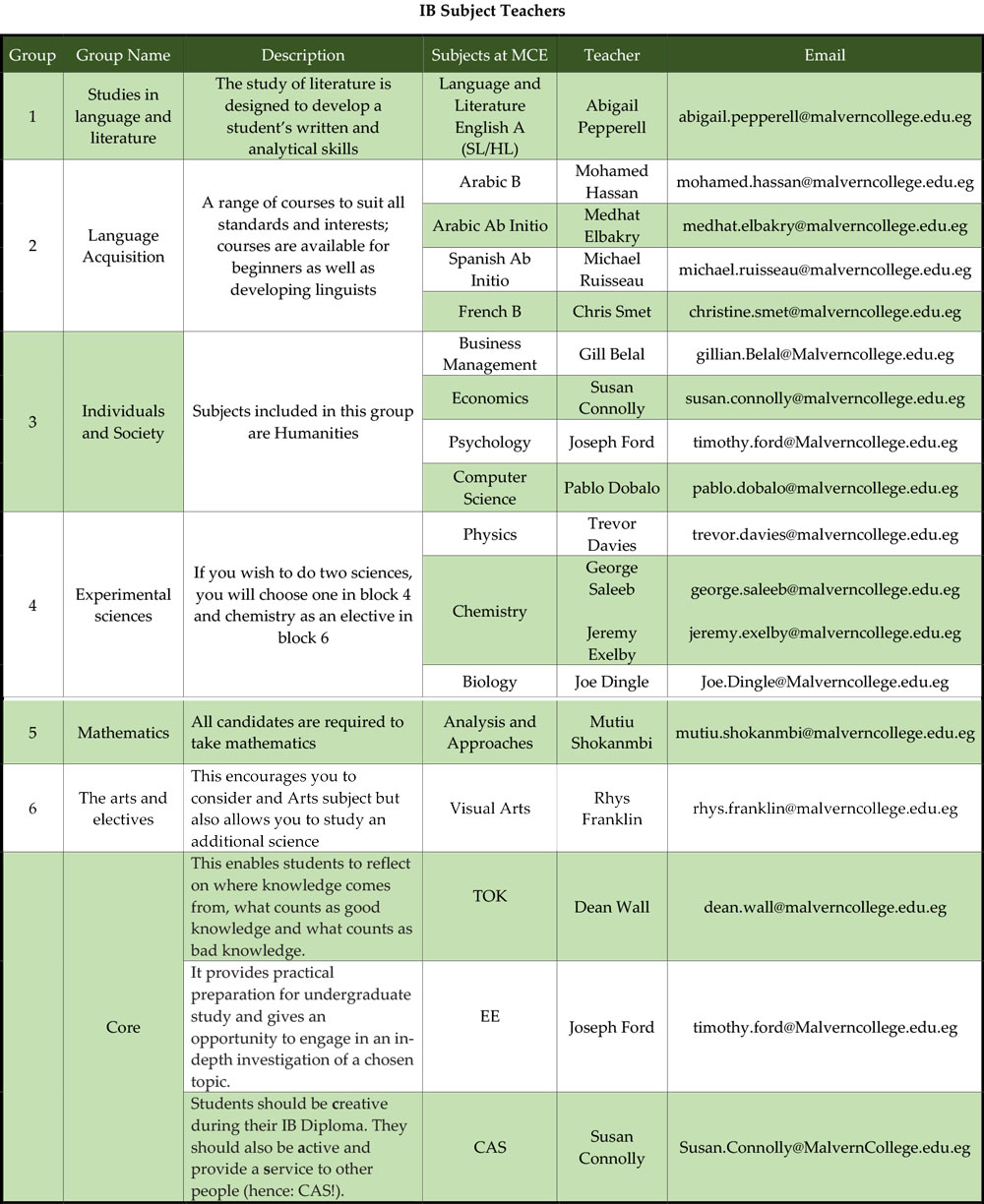
IB-Subjects-and-Teachers
Next year we also hope to offer, Arabic Ab initio, Music and Theatre Studies.
“The teachers are very knowledgeable, caring and creative.” (IBDP Student 2019)
The IB Core
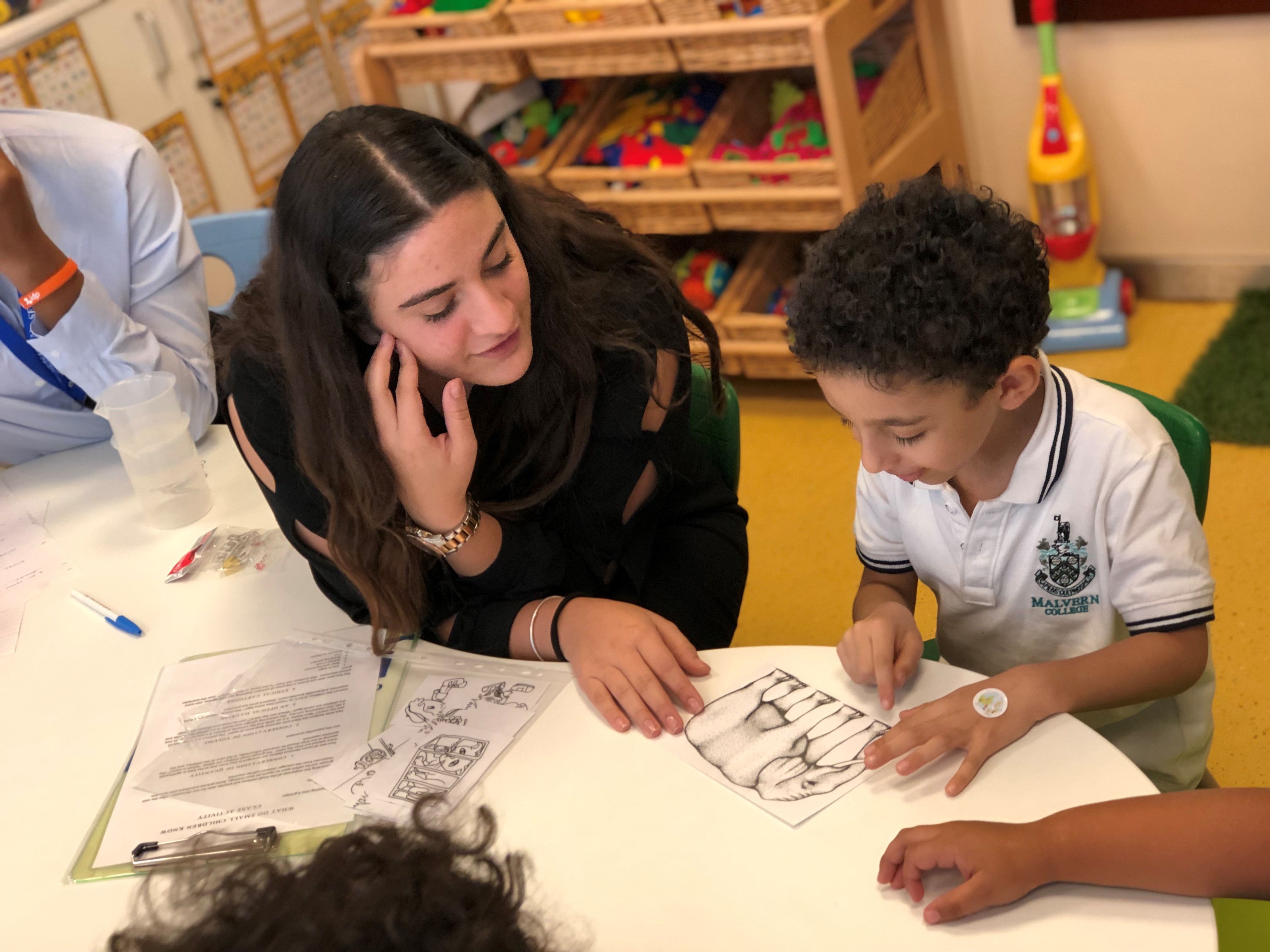
Theory of Knowledge (TOK)
Often seen as the special ingredient of the IB Diploma course, Theory of Knowledge asks students to reflect on the nature of knowledge in each of their subject areas. It provides excellent preparation for university in the future. This course is obligatory for every Diploma candidate because it is a key element in the educational philosophy of the IB. Its purpose is to stimulate critical reflection upon pupils’ knowledge and experience both inside and outside the classroom. The course is thus “philosophical” in the sense that it means to encourage the pupils to acquire a critical awareness of what they and others know through analysing concepts and arguments as well as challenging the origins of value judgements, which all human beings make. Although there is no examination at the end of the course, pupils are assessed by means of a presentations and an externally assessed essay, the themes and concepts of the subject run through every subject.
Extended Essay (EE)
Students are required to write a 4000 word Extended Essay. This aspect of the course is designed to allow students to engage in independent research through the in-depth study of a question relating to one of their diploma subjects. Each student will be allocated a supervisor. A time is set aside to help students to start the essay during term time. The Extended Essay provides a major focal point for university interviews and helps to give students the edge over their competitors. It provides practical preparation for undergraduate study and gives an opportunity to engage in an in-depth investigation of a chosen topic.
“I like that I am encouraged to take part in new activities that are not part of my subjects.” (IBDP Student 2019)
Creativity, Action and Service (CAS)
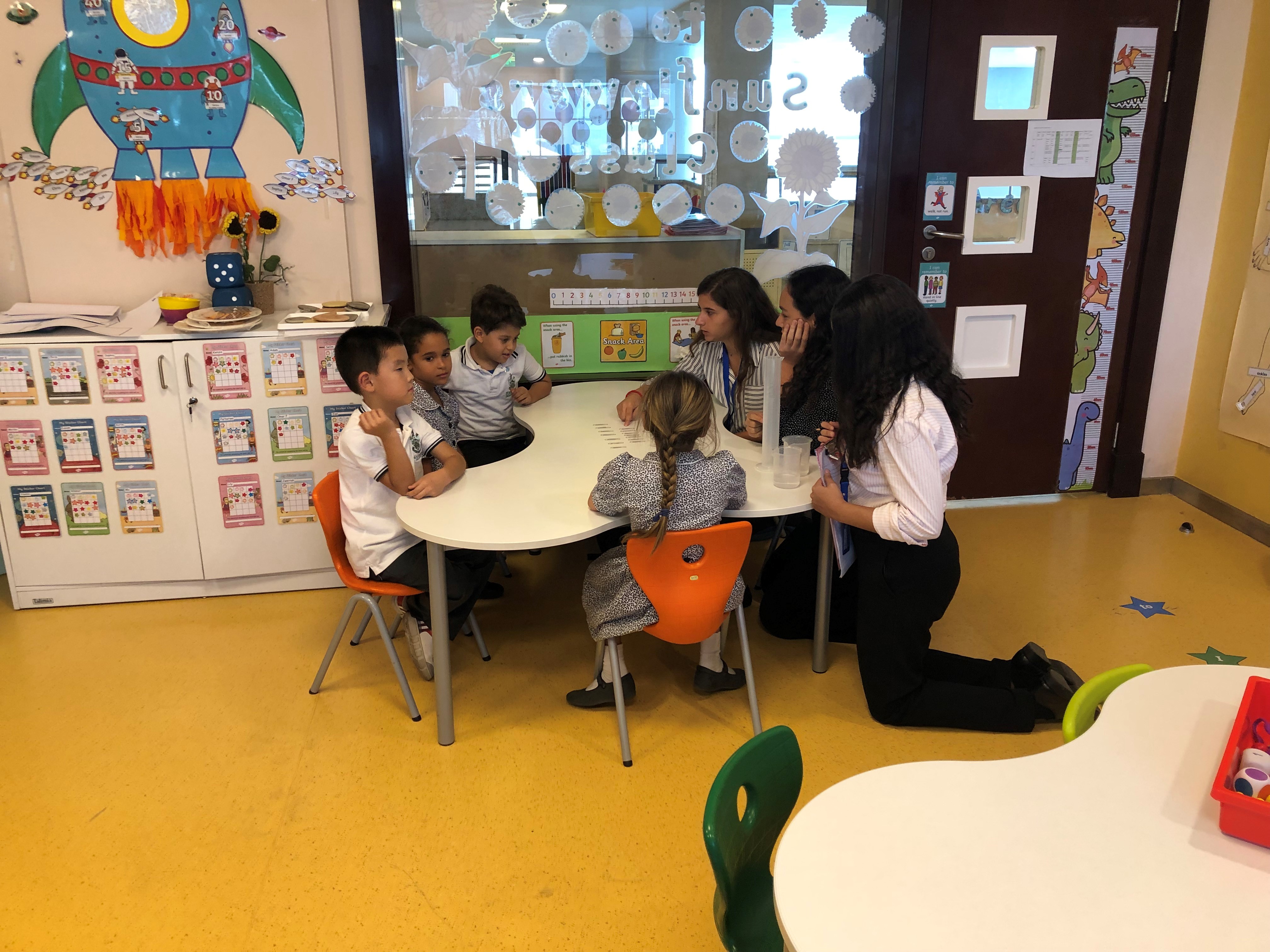
CAS credits students for their learning outside of the curriculum. This component ensures pupils are learning from experience, developing new skills in entirely new areas; building their strengths whilst at the same time discovering new talents. Each activity or project is monitored for appropriateness, quality and pupil participation. Evaluation by MCE and self-evaluation by the pupil is a continuous process throughout the whole two-year diploma period. MCE includes comments on a pupil’s CAS project(s) in references and testimonials, particularly to universities. These indicate the level of commitment, the significance of the contribution, and an assessment of personal growth and development over the two years.
IB Routes
IB Routes
The following tables give some examples of the combinations of courses students can follow at IBDP in order to study a particular course at university.
Some examples:
The IB Diploma Programme avoids the dangers of early specialisation. For example the all-rounder in the examples above could go to study:
Medicine PPE, Chemistry, Biology, Mathematics, Economics, Business, English Literature, French (as a subject in its own right or combined with any of the others)
| Medicine/Biochemist |
|---|
| Biology HL |
| Chemistry HL |
| Mathematics A & A HL |
| English B SL |
| Arabic A SL |
| Business Management SL |
| Mathematician/Physicist/Engineering |
|---|
| Physics HL |
| Mathematics A & A HL |
| Chemistry HL |
| Arabic A SL |
| French B SL |
| Business Management |
| Linguist |
|---|
| Arabic A HL |
| Spanish Ab Initio HL |
| ITGS SL |
| Biology HL |
| Maths A & I SL |
| Geography SL |
| All-Rounder |
|---|
| English A HL |
| Chemistry HL |
| Mathematics HL |
| French B HL |
| Business Management SL |
| Psychology SL |
The IB Learner Profile
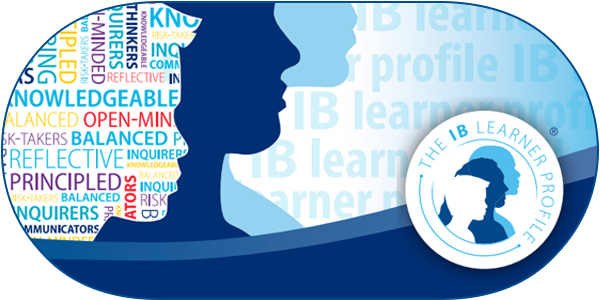
The aim of all IB programme is to develop internationally minded people who, recognizing their common humanity and shared guardianship of the planet, and help to create a better and more peaceful world.
Below is the IB learners profile– it is something we are proud at Malvern to say we already exemplify at the College within our own Malvern Qualities.
As global citizens, we strive to be:
Inquirers (Malvern Quality – Curiosity)
We nurture our curiosity, developing skills for inquiry and research. We know how to learn independently and with others. We learn with enthusiasm and sustain our love of learning throughout life.
Knowledgeable (Malvern Quality – Ambition, Humility and Open mindedness)
We develop and use conceptual understanding, exploring knowledge across a range of disciplines. We engage with issues and ideas that have local and global significance.
Thinkers (Malvern Qualities – Ambition, Curiosity and Independence)
We use critical and creative thinking skills to analyse and take responsible action on complex problems. We exercise initiative in making reasoned, ethical decisions.
Communicators (Malvern Qualities – Collaboration and Open mindedness)
We express ourselves confidently and creatively in more than one language and in many ways. We collaborate effectively, listening carefully to the perspectives of other individuals and groups.
Principled (Malvern Qualities – Integrity, Independence and Risk taking)
We act with integrity and honesty, with a strong sense of fairness and justice, and with respect for the dignity and rights of people everywhere. We take responsibility for our actions and their consequences.
Open-minded (Malvern Quality – Open mindedness)
We critically appreciate our own cultures and personal histories, as well as the values and traditions of others. We seek and evaluate a range of points of view, and we are willing to grow from the experience.
Caring (Malvern Qualities – Kindness and Integrity)
We show empathy, compassion and respect. We have a commitment to service, and we act to make a positive difference in the lives of others and in the world around us.
Risk-takers (Malvern Qualities – Risk taking and Independence)
We approach uncertainty with forethought and determination; we work independently and cooperatively to explore new ideas and innovative strategies. We are resourceful and resilient in the face of challenges and change.
Balanced (Malvern Qualities – Humility and Self-awareness)
We understand the importance of balancing different aspects of our lives – intellectual, physical, and emotional – to achieve well-being for ourselves and others. We recognize our interdependence with other people and with the world in which we live.
Reflective (Malvern Quality – Self-awareness)
We thoughtfully consider the world and our own ideas and experience. We work to understand our strengths and weaknesses in order to support our learning and personal development.
The IB learner profile represents 10 attributes valued by IB World Schools and the Malvern qualities represent the 10 we value the most. The IBO and MCE believe all these attributes, and others like them, can help individuals and groups become responsible members of local, national and global communities.
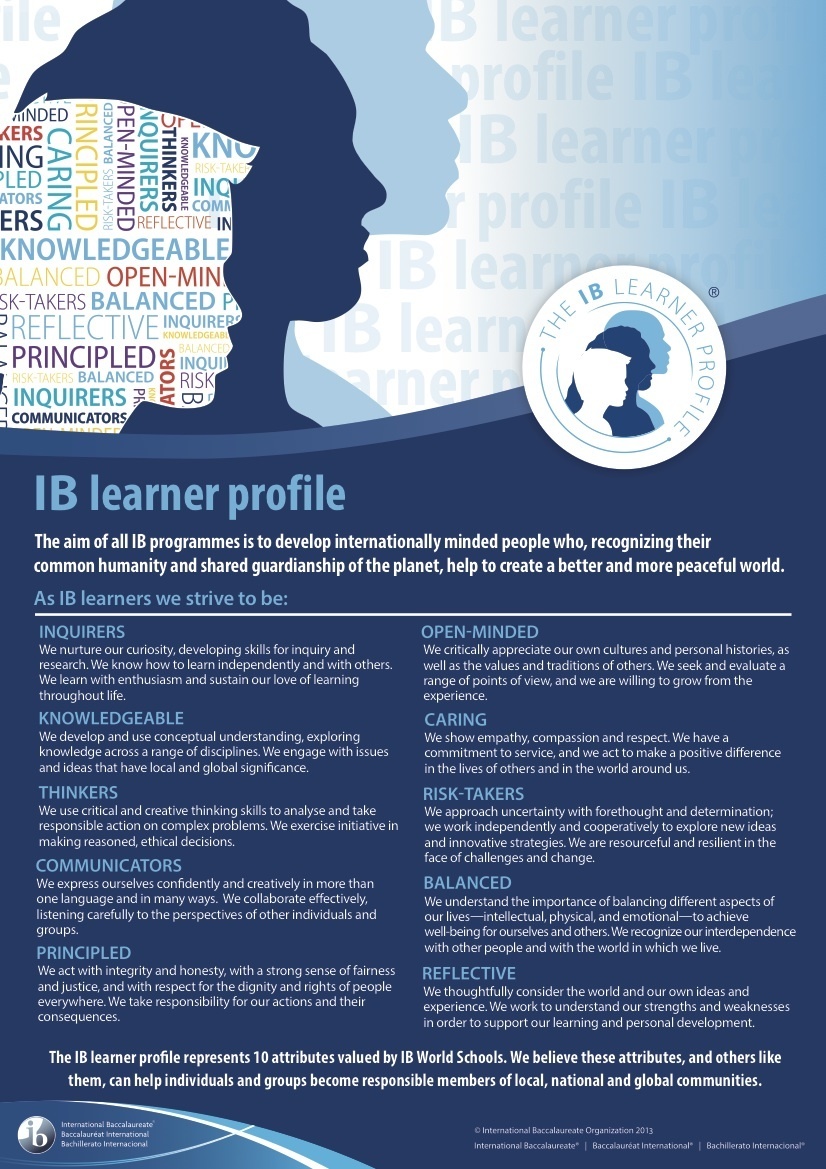
Frequently Asked Questions
How is the IBDP different from IA (International Advanced) Levels?
The most fundamental difference is that the IBDP offers programme of six academic subjects and three core elements, underpinned by a holistic philosophy of education.
Why does Malvern College Egypt offer a choice between IBDP and IA Level?
Because not all pupils are the same and one programmer may suit one individual better than another.
Is the IBDP more demanding than IA Levels?
Pupils studying for the IB will take more subjects than most pupils doing IA Levels. This does mean increased demands on their time and necessitates greater personal organization and more independent learning on their part, particularly due to the TOK and EE elements of the Diploma.
In addition, each Higher Level course requires a similar depth and understanding to the equivalent IA Level course, and in that sense is equally demanding, but is likely to contain less breadth.
Are IA Levels and IBDP Classes taught together?
Each course is taught separately.
Does studying six subjects mean that each subject has less depth?
Higher Level courses involve study in as much depth as IA Level but may have fewer topics depending on the subject. At Standard Level depth is comparable to that of the AS.
How do universities regard IBDP?
They regard IBDP highly. Worldwide there are more than 1,800 universities representing 75 countries that currently acknowledge and welcome pupils with an IB qualification. In the UK universities’ admissions tutors see IB pupils as self motivated and independent learners who will make the more to university life easily. There is strong evidence that IB pupils entering university have a lower dropout rate than others that they achieve more first class honours awards than other groups.
Is the IBDP a good course for
someone who struggles with foreign languages and/or maths?
MCE offers both Arabic and Spanish ab initio, for which no prior knowledge is required and which concentrates on communication. The SL Mathematical
Applications and Interpretation course is challenging as it extends past the IGCSE level but it would not be beyond a student”s
capabilities.
How does the IBDP programme develop the learner profile?
The learner profile is supported throughout the Diploma Programme and is in line with the Malvern qualities that we instill and
encourage every day.
Which subjects should I choose?
First, consider which subjects you have enjoyed at school and try to understand what you have liked about them. Personal interest and motivation are good starting points. You should consider whether there are any new subjects that you would like to study and research what the content of these courses is. Ideally, you should aim to pick a healthy balance. If you are going to study new subjects you should combine these with some of the more traditional subjects, such as English, History, Geography, a Foreign Language, Mathematics and/ or Science.
Secondly, consider which subjects you have been good at. You will have to show the ability and potential if you are going to succeed.
Thirdly, think about your future. The IBDP is a stepping-stone into university and your career. Think about where you want to go with your choices and be aware that there are some professions where your choices will decide your future. For example, Chemistry and Biology are usually prerequisites for those who wish to study Medicine, Pharmacy and Veterinary
Science in the UK, whilst some countries also require Physics. Physics and Mathematics are necessary for Engineering, whereas English or History are often required for Law. The Head of Sixth Form can provide guidance about choices if
necessary.
Finally, think about how your choices will combine to give you an educational experience that is broad and balanced, relevant and enjoyable.
Take your time, discuss with friends, family, other students and most importantly of all, your teachers!
“It requires you to be organised and I’m trying.” (IBDP Student 2019)
What will my timetable be like and what will you expect from me?
Sixth Form, expect to find the following:
- Varying Class Sizes and Timetables
Class size varies depending on the subject your timetable will depend on your chosen studies. The IBDP timetable consists of 10 periods of HL lessons over a two week period for each subject (30 in total) and seven periods for SL (21 in total). There are also two periods a week for TOK, one period for the Extended Essay and one for CAS. Students should have nine lessons of study time over a two-week cycle.
- The Need for Critical Thinking Skills
In Sixth Form you will be expected to understand and remember what you read. You will also be asked to draw conclusions, form opinions, and evaluate the ideas of others. This prepares you for the rigors of university. Most of this will be supported and encouraged in TOK and EE time but throughout their subjects as well.
- Strong Emphasis on Tests and Less Busywork
Students who succeed do their assignments and keep up with their reading, the course will require them to prioritise their time and keep up with all requirements.
- The Need for Personal Responsibility
In Sixth Form, you have an amount of freedom. You are responsible for your own academic progress with support from your Tutor. But you must take responsibility for your studies. You are expected to do most of your learning on your own. The general rule is: For every one hour you spend in class, you should spend two hours out of class reading, studying, and completing assignments.
- Consequences
MCE has academic standards that students must meet in order to stay enrolled. Students may be placed on academic probation if their grades fall below a certain point. Students on probation must bring their grades up by a specified time. If they do not, we
may decide that MCE is unable to meet your needs and it would be unfair to ask you to complete a course or subject which you would not pass. Regular assessments in subjects and reviews by your tutor would raise these concerns early in the course to ensure time is given to rectify any issues.
Who should I contact if I need more information?
IBDP Co-ordinator Mr. Timothy Joseph Ford at [email protected]
More information about the IB can be found at https://www.ibo.org
“I like how interesting the lessons become every day.”(IBDP Student 2019)
